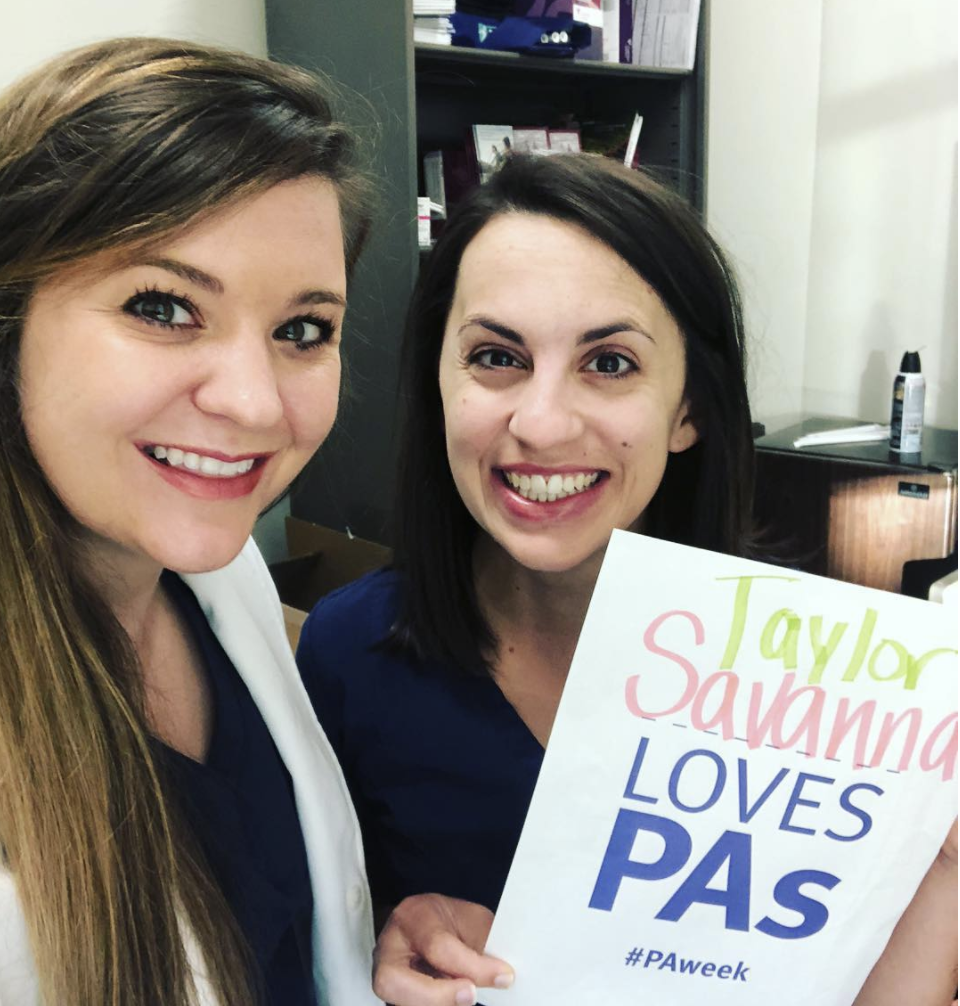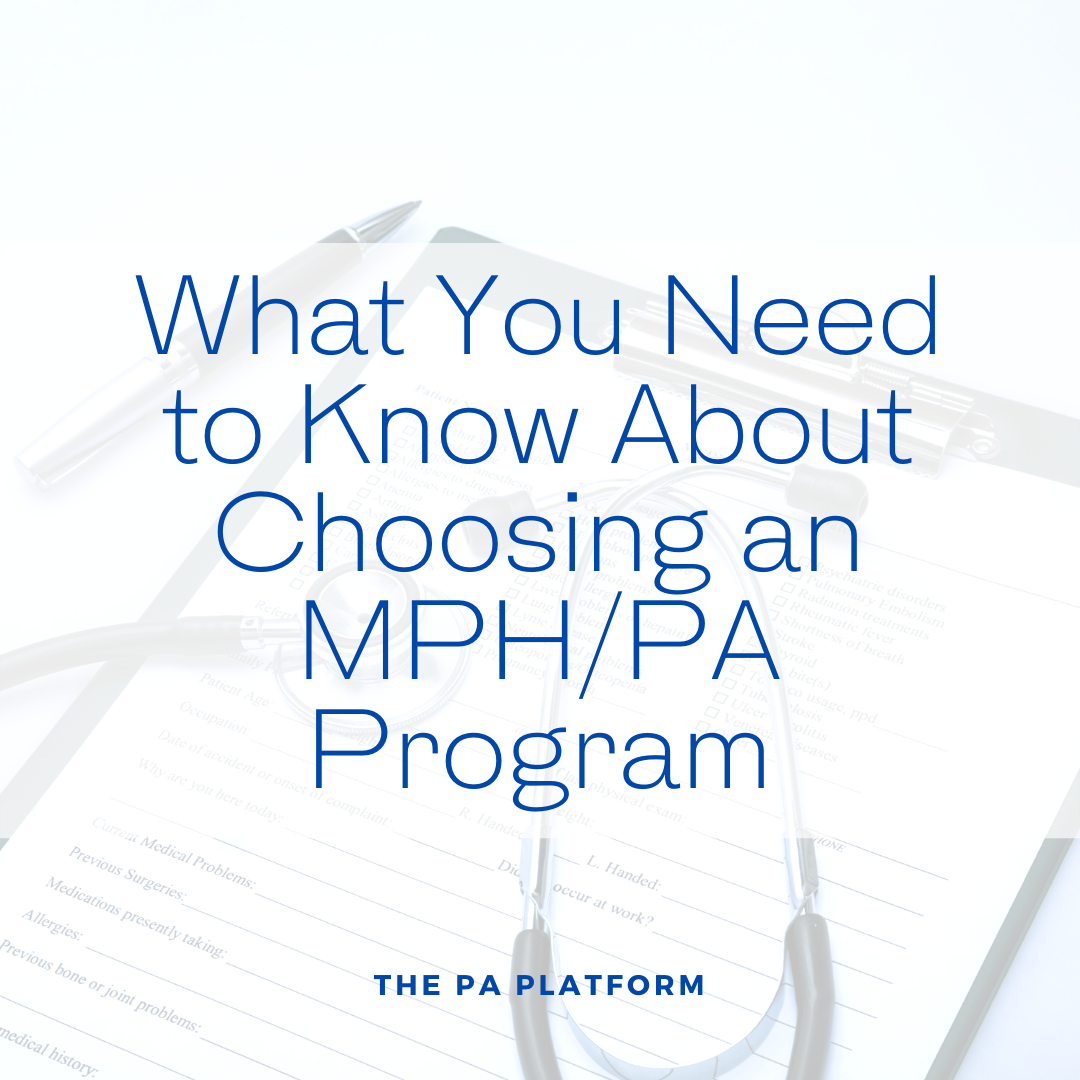Taylor has done some guest posts in the past, and if you haven't met her yet, she's my work (and real life) BFF and medical assistant that I work with most of the time. We're basically side by side for 8 hours while we're at the office, and we share a love of Taylor Swift, vacations, and crab cakes among many other things. Taylor is currently on her own journey to becoming a PA, and I'm thankful that she's sharing some of what she's learned along the way.
If you're interested in how being a medical assistant can help you towards your PA goals, here's some insight into what you can hope to gain from this type of patient care experience. If you have the luxury of getting certified as a medical assistant, check out The PA Platform Search Engine to see if there's a program near you that fits your needs and get more information.
When I first started as medical assistant, I had zero experience in the medical field. I had no idea what BID or TID meant, had no idea how to spell medications (Well, I still don’t. Spelling is not my strength. Ask Savanna.), and did not know a 30-gauge needle from a 15’ blade.
I had just graduated with a degree in public relations and had a whopping four science and math classes during my college career. The office that I worked in trained me on sight, which was quite a risk for them. I am not too familiar with Certified Medical Assistant (CMA) programs, but I am sure those students going into jobs find it easier than I did. I had a lot of learning to do and had to catch on quickly. Medical terminology and understanding how a medical practice functions were some of the first lessons that I had to learn.
I started off working at the front desk, but eventually began working full time as our PA’s medical assistant. Even from the beginning of my experience in the medical field, being able to interact with patients and assist the physician was my favorite part. I enjoyed learning about dermatology through being in the exam room with her. There is so much that you can learn while listening to a physician examine a patient!
We get to see some very interesting cases and no day is quite the same as the last. Being a medical assistant has taught me how to multi-task and how to work as a team. The biggest and most valuable lesson that being a medical assistant has taught me is that I really do want a career in the medical field. Being able to see the impact you can have on someone and the chance you get to improve someone’s quality of life is very rewarding.
My experience as a medical assistant has led me to pursue becoming a physician assistant and I do not think I would have known this without taking a risk and trying something new. Make the most of every opportunity that you are given, you never know where it might lead you!
Other Posts from Taylor:
- Podcast Episode 15: Interview with a Dermatology Medical Assistant and Future PA - Taylor
- 10 Tips to Be the Best Medical Assistant (MA)
- Why I Decided to Go Back to School
If you would like to share how your experience has helped you in achieving your goals of becoming a PA, email savanna@thePAplatform.com to contribute.
























